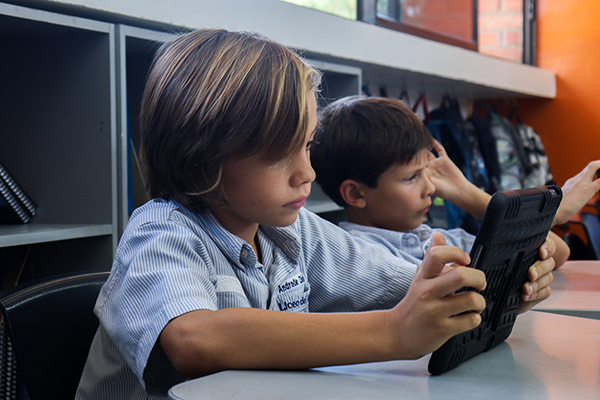Project Based Learning is based on the development of skills based on academic objectives and the development of 21st century skills. It leads each learner naturally to investigate and solve real-world questions. Project Based Learning generates learning opportunities by developing skills in:
Pedagogical practices based on the study of Neurosciences.

Visible & Design Thinking
Developing students' thinking and then accessing it by considering intellectual rigor while promoting creativity.
The evaluation focuses on the development of skills and the application of knowledge.
Gamification
Through games, students are motivated to learn in a dynamic, adaptive and meaningful way.
ACAD Learning System
Student-centered classes promoting autonomous and cooperative learning.

The FORTE Department (Fortalecimiento Escolar) is a specialized unit of the Liceo del Valle whose function is to guide and assess all activities aimed at the integral development of our students. This includes students’ cognitive, behavioral, emotional, and social development.
The activities in the FORTE Department are based on personalized education. The purpose is to help improve the quality of intervention and optimize the teaching-learning process. Support is provided for students in Elementary, Middle, and High School.
What is psycho-pedagogical orientation?
It is a process that provides support for students, teachers, and families. It includes orientation in the teaching-learning process. It attends to diversity, prevention (of what?), and personal development.
How is psycho-pedagogical orientation implemented?
The orientation is implemented through models and/or programs of orientation and psycho-pedagogical intervention. This could be done individually or in groups. It can be preventive, corrective, etc. Implementation of these programs and models requires planning and organization, establishing of phases of application, each with its own characteristics, and with the finality that guarantees students an integral formation.